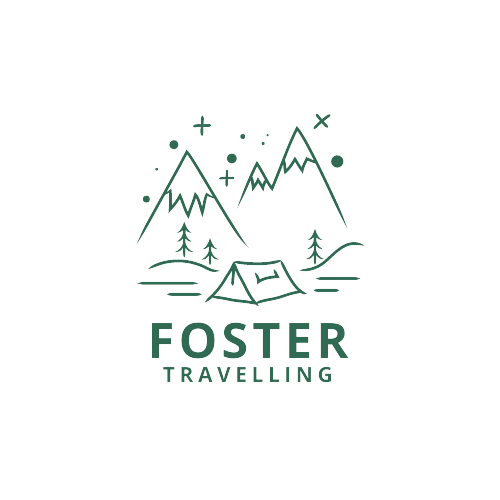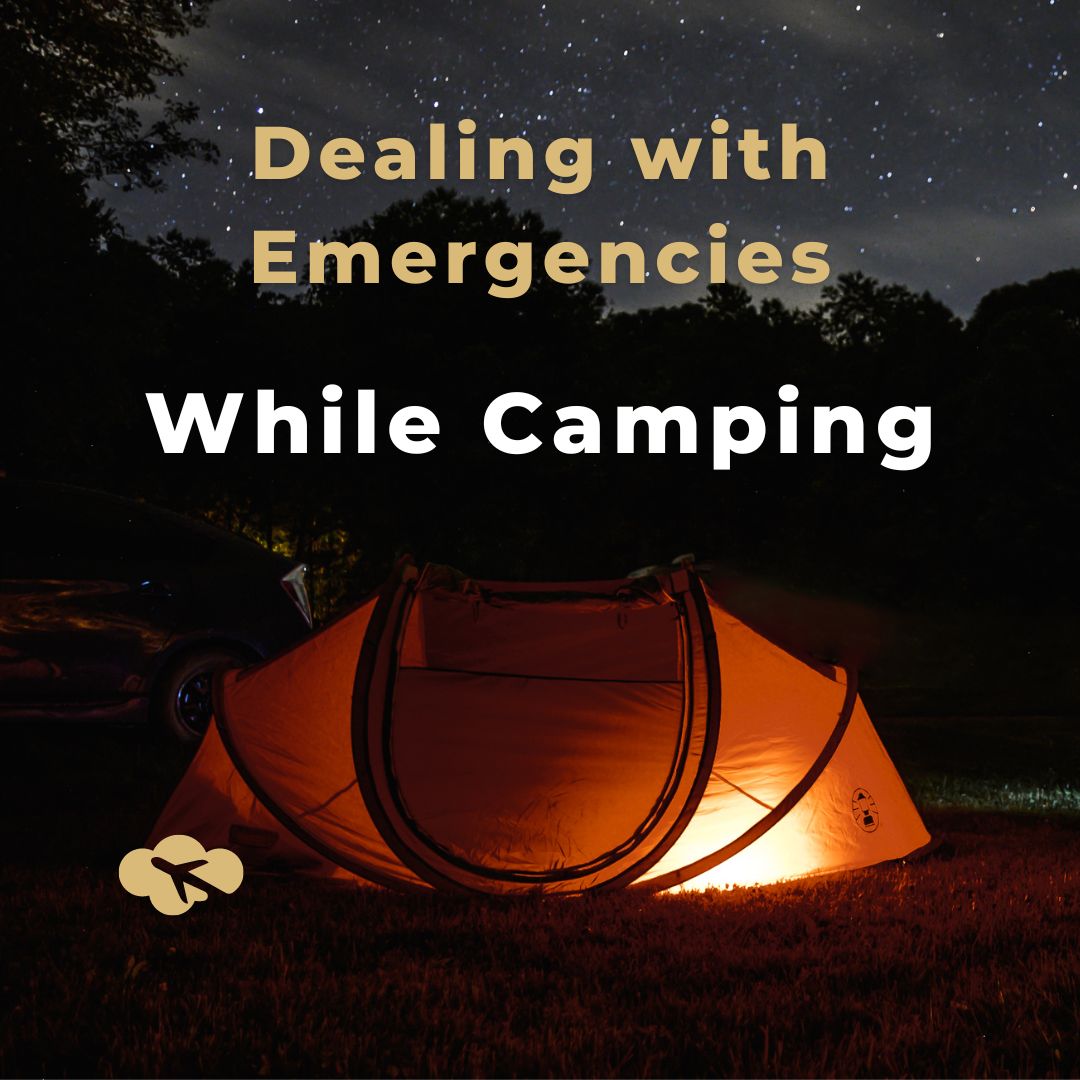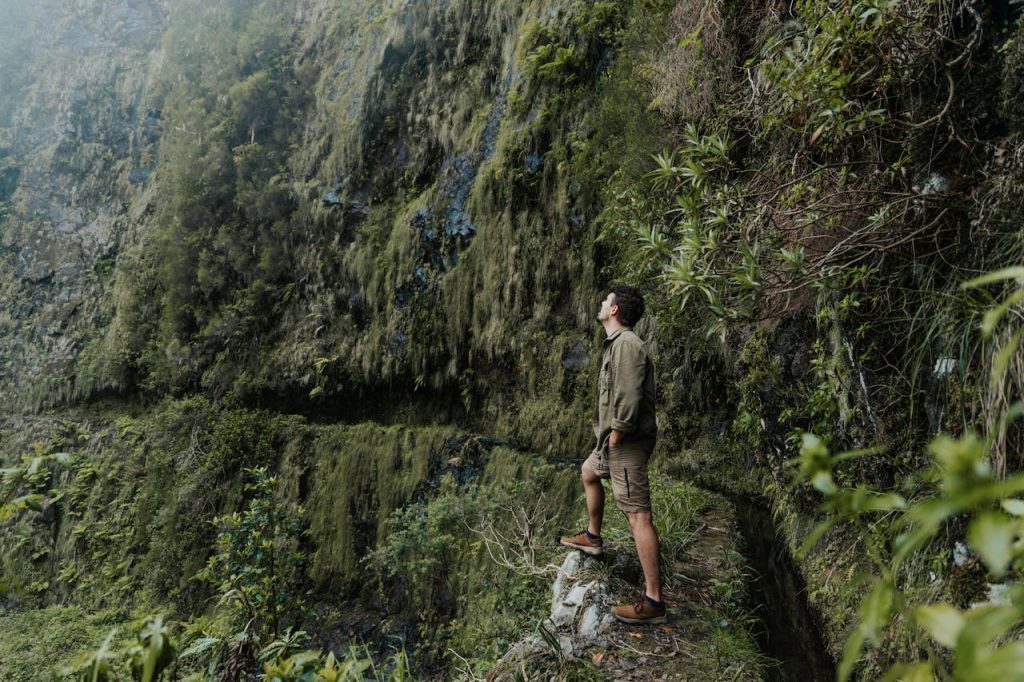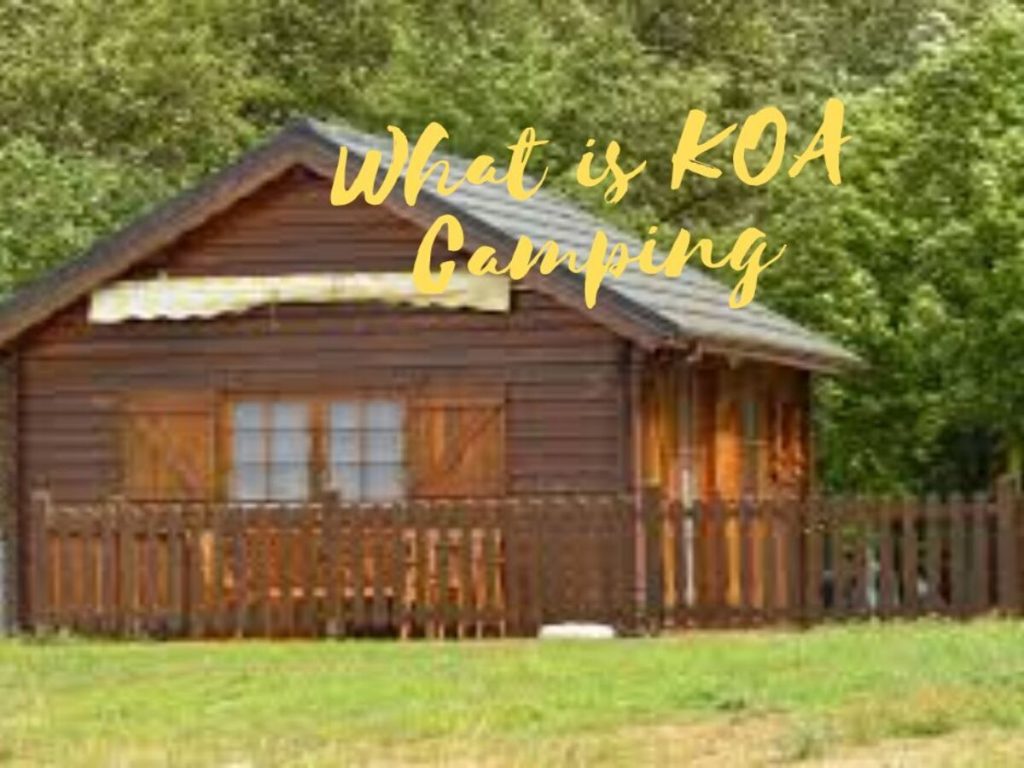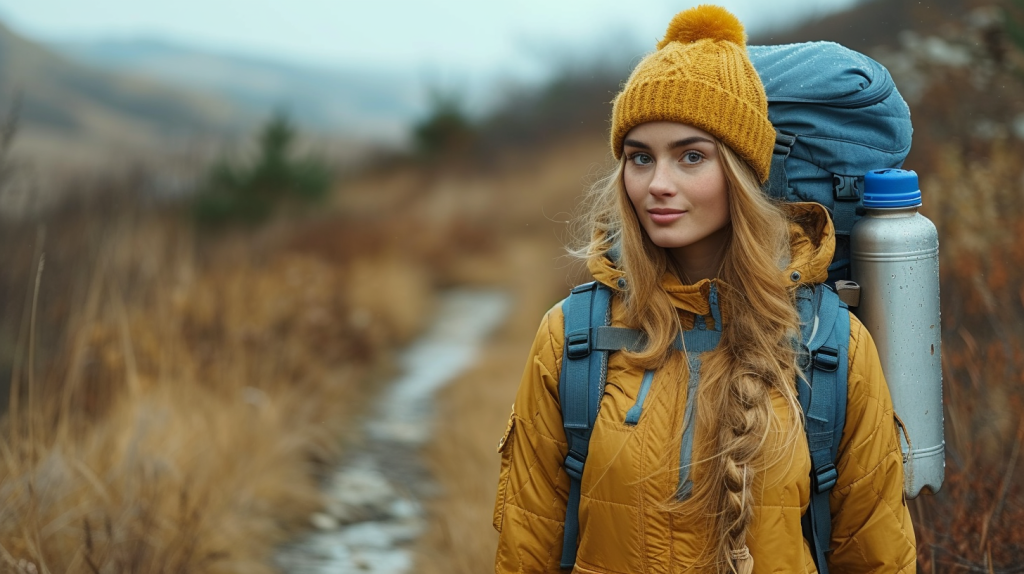Camping can be an exciting and enjoyable way to spend time outdoors, but it’s essential to be prepared for emergencies. Whether it’s an injury, a weather emergency, or a lost or missing camper, knowing what to do in a potentially dangerous situation can make all the difference. This article will explore dealing with emergencies while camping and how to prepare for and handle them.
Following proper safety protocols and being prepared can ensure a safe and enjoyable camping trip.
Common Emergencies While Camping:
Table of Contents
ToggleInjury or illness:
Camping can be physically demanding, and accidents or injuries can happen. It’s essential to have a first aid kit, know how to use it, and seek help if necessary. Some common injuries that can occur while camping include cuts, bruises, sprains, and insect bites. It’s also important to be aware of any pre-existing medical conditions you or someone in your group may have and to bring any necessary medications or supplies.
Weather Emergencies:
Camping can expose you to various types of weather, from hot and dry to cold and wet. It’s essential to be prepared for extreme weather conditions, such as storms or extreme heat, and know how to protect yourself and your gear. This can include bringing appropriate clothing and shelter, staying hydrated and cool in hot weather, and keeping warm in cold weather.
Lost or Missing Camper:
Getting lost or separated from your group can be a scary experience, especially if you’re in an unfamiliar area. It’s essential to have a plan for what to do if someone gets lost and to ensure everyone in your group knows how to communicate with each other and seek help if necessary. This can include a map, compass, and a portable two-way radio or phone. It’s also a great idea to let someone know your itinerary and expected return time in case you need to check in as planned.
Dealing with Emergencies while Camping:
First Aid Kit and Supplies:
A well-stocked first aid box is essential for handling minor injuries and illnesses while camping. Make sure you have supplies such as bandages, gauze, pain relievers, and any other necessary medications. It’s also a good idea to bring any personal medications you or someone in your group may need, such as inhalers or allergy medication. In addition to a first aid box, it’s also helpful to understand first aid techniques, such as stopping bleeding or treating a burn.
Communication Devices and Emergency Contacts:
It’s essential to have a way to communicate in case of an emergency, whether that’s a phone or a portable two-way radio. Make sure you have the numbers for local authorities, such as park rangers or the nearest hospital, and know how to use your communication devices. It’s also an excellent idea to let someone outside of your camping group know your itinerary and expected return time in case you need to check in as planned.
Familiarizing Yourself with the Area and Potential Hazards:
Before camping, it’s essential to research the area and familiarize yourself with any possible hazards, such as wildlife, dangerous plants, or extreme weather conditions. Understanding what to expect can help you be better prepared in an emergency. It’s also a good idea to see the location of the nearest hospital or other medical facilities in case you need help.
What to do Just in Case Of an Emergency while Camping:

Seek Help from Park Rangers or other Authorities:
If you’re camping in a designated campsite or park, there are likely authorities or park rangers nearby who can help in an emergency. Make sure you know how to contact them and what to do if you need their assistance. If camping in a more remote area, it’s crucial to understand how to call for help, whether using a phone or satellite.
Follow Emergency Procedures as Outlined by the Campsite or Park:
Different campsites and parks may have other procedures in place for handling emergencies. Make sure you know what to do and follow any instructions from the authorities or park staff. This may include evacuation procedures or guidelines for seeking shelter.
Administer First Aid as Necessary:
If someone is injured or sick, it’s essential to know how to administer and use your first aid kit. If the situation is serious, seek help from authorities or a hospital as soon as possible. Ensure you know basic first aid techniques, such as stopping bleeding or treating a burn. It’s also essential to know when to seek medical attention, such as if someone is unconscious or experiencing severe pain.
How to stop bleeding in case of emergency
To stop bleeding in case of an emergency:
- You can stop bleeding by placing a clean cloth or bandage over the wound and applying firm pressure directly on it.
- If feasible, raise the injured body part above the heart level to help control bleeding.
- Reserve the use of a tourniquet for extreme bleeding cases when all other measures have failed.
- If bleeding does not stop or is spurting, seek medical attention immediately.
- Monitor the injured person’s breathing, pulse, and level of consciousness while waiting for medical help.
How to Deal in case of Venomous Snake Bite
While waiting for medical help, it is recommended to:
- Move outside the striking range of the snake.
- Try to remain calm and reduce the spread of venom in the body.
- Take off any tight clothing or jewelry before swelling occurs.
- If feasible, position the affected body part at or below heart level to impede venom spread.
- Clean the bite with soap and water and use a clean, dry dressing to cover it.
Here are some cautions to keep in mind:
- Refrain from using a tourniquet or applying ice to the affected area.
- Do not attempt to remove the venom or cut the wound.
- Avoid consuming caffeine or alcohol, which may hasten the absorption of venom in the body.
- Do not make an effort to capture the snake. Instead, try to recall its color and shape to describe it accurately for proper treatment. If possible and safe, take a picture of the snake from a distance with your smartphone to aid identification.
Conclusion:
Camping can be a fun and rewarding experience, but it’s essential to be prepared for the unexpected. Dealing with emergencies while camping can make all the difference in a potentially dangerous situation. Following proper safety protocols and being prepared can ensure a safe and enjoyable camping trip. This includes having a well-stocked first aid kit, knowing how to use it, and having communication devices and emergency contacts on hand. It’s also essential to familiarize yourself with the area and potential hazards and follow any emergency procedures outlined by the campsite or park.
By being prepared and knowing what to do in an emergency, you can enjoy your camping trip with confidence and peace of mind.
FAQs
What are the most common injuries in camping?
Several common injuries can occur while camping, including:
- Sprains and strains can occur from falls, overexertions, or awkward movements while setting up camp or participating in outdoor activities.
- Cuts and scrapes: These can be caused by sharp objects or edges, such as rocks or branches, and can be easily treated with basic first aid.
- Sunburn: Spending extended periods in the sun without adequate protection can lead to sunburn, which can be painful and damaging to the skin.
- Insect bites and stings: Mosquitoes, ticks, and other insects can bite or sting, causing itching, swelling, and sometimes allergic reactions.
- Hypothermia happens when the body becomes too cold and can be caused by exposure to cold temperatures or getting wet.
- Heat stroke occurs when the body becomes too hot and can be caused by exposure to high temperatures or physical activity in hot weather.
To prevent injuries while camping, it’s essential to stay hydrated, protect yourself from the sun, and wear appropriate clothing and footwear. It’s good to use caution when participating in outdoor activities. It’s also an excellent idea to bring a basic first aid box and know how to use it.
What are the 5 W’s of camping?
The 5 W’s, also known as the 5 W’s and 1 H, are questions used to gather information about a particular subject. In the context of camping, the 5 W’s might include:
- What: What will you be doing while camping? Will you be hiking, fishing, or just relaxing?
- Who: Who will be going camping with you? Will you be camping with family, friends, or solo?
- Where: Where will you be camping? Will you be camping in a tent, RV, or cabin?
- When: When will you be camping? Will you be camping in the summer, fall, winter, or spring?
- Why: Why are you going camping? Is it for relaxation, adventure, or to spend time with loved ones?
The additional “H” (for “how”) could be added to the list to ask how you will be camping, such as whether you will be camping in a developed campsite or backcountry camping. Understanding the 5 W’s can help you plan and prepare for your camping trip, ensuring that you have all the necessary gear and supplies and are adequately equipped to enjoy your time outdoors.
What are Five Camping Safety Tips?
Here are five camping safety tips to help you have a safe and enjoyable trip:
Know your Surroundings:
Familiarize yourself with the area you’ll be camping in, including any potential hazards such as wildlife or difficult terrain.
Set up Camp in a Safe Location:
Choose a flat, well-drained campsite away from potential hazards, such as bodies of water or steep drop-offs.
Use Proper Equipment:
Ensure you have the right gear for your trip, including a good-quality tent, sleeping bag, and other essential equipment.
Store Food Properly:
Keep food stored in bear-proof containers or hung from trees to prevent wildlife from accessing it.
Follow Leave No Trace principles:
These principles help to protect the environment and preserve natural resources by minimizing the impact of camping on the land. Some principles include leaving the campsite as you found it, properly disposing of trash, and respecting wildlife.
Following these safety tips can help ensure an enjoyable and safe camping trip.
What should you not do while camping to avoid Emergencies?
There are various things that you should avoid doing while camping to ensure the safety and enjoyment of yourself and others:
Make sure to leave your campsite occupied for extended periods:
This can leave your campsite vulnerable to theft or damage.
Don’t build a fire in an unsafe location:
Only build a fire in a designated fire ring or other approved location, and ensure it is fully extinguished before leaving the campsite.
Don’t litter:
Properly dispose trash and follow Leave No Trace principles to save the environment and preserve natural resources.
Don’t leave food out:
Store food properly to prevent wildlife from accessing it and potentially causing a safety hazard.
Don’t engage in risky activities:
Use caution and good judgment when participating in outdoor activities, and be conscious of your surroundings.
Following these guidelines ensures that you and others have a safe and enjoyable camping experience.
Safe Camping!
Popular Articles:
